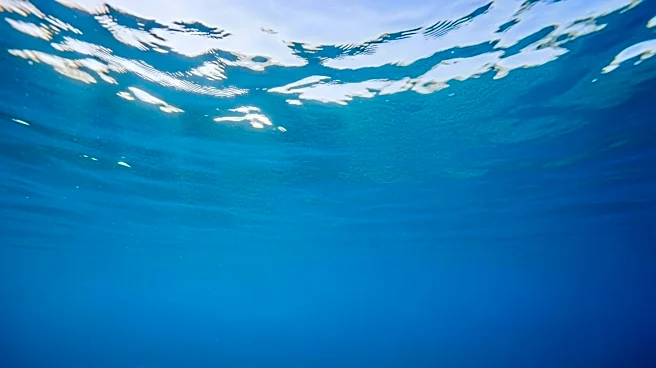What's Happening?
A team of scientists has uncovered a massive freshwater aquifer beneath the Atlantic Ocean, stretching from Massachusetts to New Jersey. This discovery, made by researchers from Woods Hole Oceanographic Institution and Columbia University, was achieved using electromagnetic waves to map the aquifer. The project, known as Expedition 501, involved drilling into the aquifer to collect water and sediment samples. The water found has a salt content significantly lower than seawater, making it potentially suitable for drinking. The age and replenishment rate of the water are still under investigation, with results expected in six months. This aquifer could provide a new source of freshwater, crucial for addressing global water shortages.
Why It's Important?
The discovery of this aquifer is significant as it could offer a new freshwater resource for coastal populations, which are increasingly facing water scarcity due to climate change and over-pumping of onshore aquifers. Nearly half of the world's population lives near coastlines, and the potential to tap into offshore aquifers could alleviate water shortages. However, challenges such as the energy-intensive process of extracting and transporting the water, as well as the risk of contamination, need to be addressed. The findings could also inform similar explorations in other regions, potentially impacting global water resource management.
What's Next?
The next steps involve detailed analysis of the water samples to determine their age and origin, which will help assess the aquifer's sustainability. Scientists will also explore the technical and logistical challenges of extracting and utilizing this water resource. The potential use of wind power to aid in extraction and the management of the water supply are areas of focus. The research could take up to a decade before offshore aquifers are fully tapped, but the implications for global water supply are promising.
Beyond the Headlines
This discovery raises ethical and logistical questions about the management and distribution of offshore freshwater resources. The potential for contamination and the high costs associated with extraction highlight the need for careful planning and international cooperation. The research also underscores the importance of protecting existing freshwater resources on land while exploring alternative solutions.










